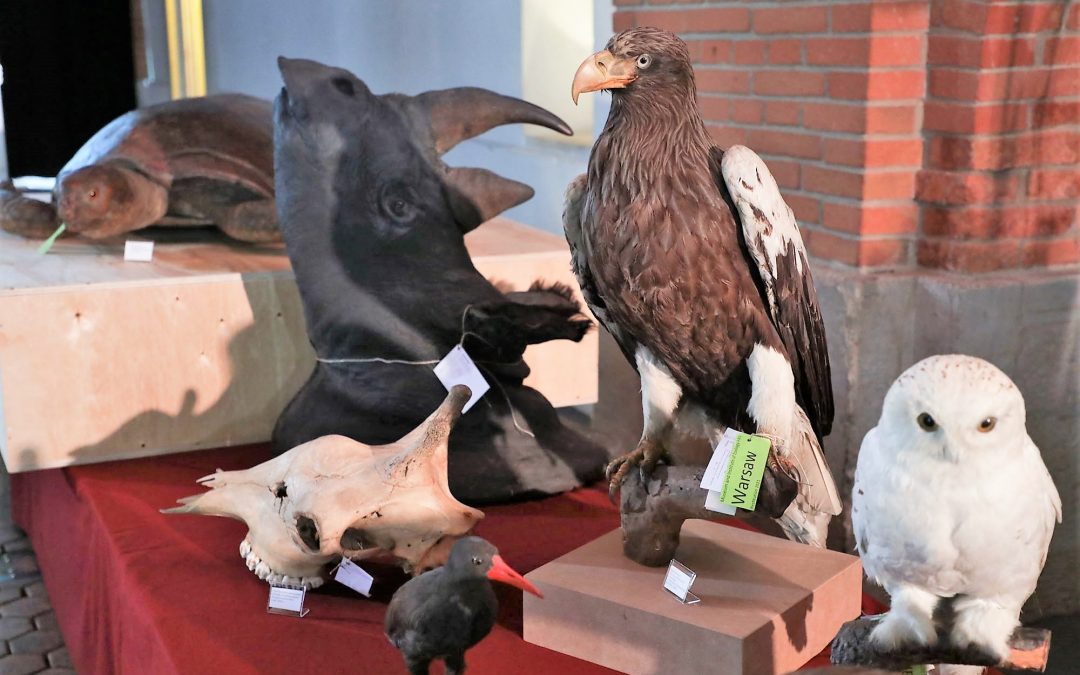A collection of animal specimens and scientific books stolen from Warsaw’s Zoological Museum and transported to Austria in the first months of the Second World War have been returned to Poland.
The 37 exhibits and 46 books, which were handed over at a ceremony at the Royal Castle in Warsaw on Wednesday by the Haus der Natur – Museum of Natural Science and Technology in Salzburg, will be returned to the same institution, now the Museum and Institute of Zoology of the Polish Academy of Sciences.
📢 🇵🇱 37 okazów przyrodniczych i 46 książek naukowych, zagrabionych w czasie II wojny światowej z Państwowego Muzeum Zoologicznego w Warszawie, powróciło do Polski❗️
Poznaj historię odzyskanych obiektów ⤵⤵⤵https://t.co/41XscKk9Aa pic.twitter.com/dU6kW0GnWa— Ministerstwo Kultury i Dziedzictwa Narodowego (@kultura_gov_pl) May 11, 2022
The “unique collection” was taken on 8 and 9 November 1939, two months after Nazi Germany launched its invasion and occupation of Poland, explained culture and national heritage minister Piotr Gliński at the ceremony.
Some items were found immediately after the war and returned in 1946, reports the Polish Press Agency (PAP). But in 2017, the Haus der Natur informed the Polish embassy in Austria of other artefacts from Poland that had been discovered in its warehouse.
The return of the collection follows over two years of study of the items by scientists from the Warsaw museum. They were helped in their efforts by a surviving list of plundered objects drawn up by Eduard Paul Tratz – the then director of the Haus der Natur – who coordinated the removal of the collection, as well as an archival film documenting it (parts of which are shown in the clip below).
Do Polski wraca kolekcja okazów zoologicznych i książek naukowych zagrabionych podczas II wojny#wieszwiecej @kultura_gov_pl @PiotrGlinski pic.twitter.com/k2kvNwV5xJ
— tvp.info 🇵🇱 (@tvp_info) May 11, 2022
Tratz was operating as part of a Sonderkommando set up by the archaeologist Peter Paulsen with the task of plundering cultural items from Poland, “Both belonged to the Nazi party and were among many scientists in uniforms responsible for looting Polish heritage,” said Gliński.
As well as seeing six million of its citizens die during the war and many of its towns and cities destroyed, Poland also suffered enormous losses of cultural objects through plundering and destruction.
“It is estimated that Poland lost 70% of its material cultural heritage at this time – around half a million works of art alone,” said Gliński, noting that tens of thousands of works of art remain listed as missing.
Gliński thanked the Haus der Natur for its efforts in returning the collection, calling it “another step towards settling wartime history”. But he warned that other “matters are yet to be settled”, noting that “independent Poland has not received any fair compensation for wartime losses and looting, including those concerning Polish culture and science”.
Poland’s ruling national-conservative Law and Justice (PiS) party has long maintained that Poland is still owed huge amounts in reparations for the suffering and destruction caused by Germany during the war.
It has hinted that it will seek to claim hundreds of billions of dollars, though has yet to publish a long-promised report estimating the total losses. Germany has maintained that the issue of reparations was legally settled decades ago and is therefore closed.
Main image credit:

Ben Koschalka is a translator, lecturer, and senior editor at Notes from Poland. Originally from Britain, he has lived in Kraków since 2005.



















